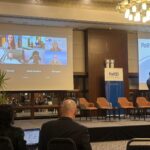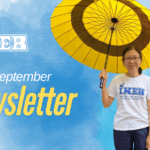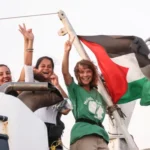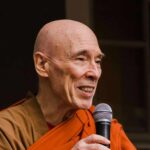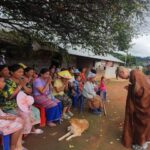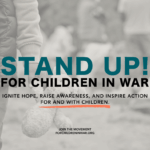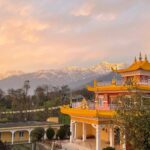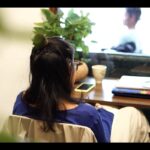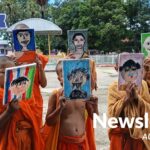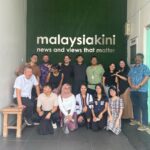[et_pb_section fb_built=”1″ _builder_version=”3.19.9″][et_pb_row _builder_version=”3.19.9″][et_pb_column type=”4_4″ _builder_version=”3.19.9″ parallax=”off” parallax_method=”on”][et_pb_text _builder_version=”3.19.9″]
CURLS 2019 marked the 10th anniversary of the School for Wellbeing Studies and Research. At this occasion the Chulalongkorn University Right Livelihood Summerschool (CURLS) concluded with a two day forum Nature Rights, Global Citizenship and Reclaiming “the Commons”: the Rise of Earth Trusteeship.
The School for Wellbeing was founded in 2009 as a follow-up to the 3rd International Conference on Gross National Happiness held in Thailand two years earlier. The founding partners were the Faculty of Political Science of Chulalongkorn University (CU), the Centre for Bhutan & GNH Studies (CBS), based in Thimphu, Bhutan and the Sathirakoses Nagapradipa Foundation.
CURLS is a program bringing students together from all over the world to learn about sustainability, organic agriculture, and right living. The Summer School balances the traditional academic learning of speakers and text with alternative forms of learning through art and theater. The movement, art, and theater components culminated in an artistic exhibition and a 45-minute performance during the Earth Trusteeship Forum at Chulalongkorn University. While learning activities varied, the theme of the School focused on Earth Trusteeship and innovative ways to reimagine ‘the Commons.’
Over the course of the program, CURLS was divided into four modules illustrating the various stages of the learning journey.
Module I: Academia – Civil Society Dialogue
The first module focused on the major academic themes of the Summer School and on bringing the students closer together. Participants were introduced to the ideas behind Earth Trusteeship and Right Livelihood activism. One notable activity for the participants was a panel exploring the effects of neoliberalism by a diverse group of thinkers and activists. During another activity they learned about the origins of the Right Livelihood Award Foundation and about the achievements of some of the laureates.
In addition to the academic work, they learned more about each other through movement exercises and theater workshops. The CURLS methodology of teaching through art was introduced, and participants began learning how to embrace certain emotions and present that feeling in front of the group. The goal of the first module was to share the basic themes of the Summer School and to facilitate an environment where students learned more about one another and bonded through the experience.
[/et_pb_text][et_pb_image src=”https://old-website.inebnetwork.org//wp-content/uploads/2019/09/1-1.jpg” _builder_version=”3.19.9″][/et_pb_image][et_pb_text _builder_version=”3.19.9″]
Module II: Creative Retreat
The next stage of the programme was a short stay at the Wongsanit Ashram, which is a haven for social activists to rejuvenate in a space blending society and nature. Activities in this module included role playing various global identities, trust walks around the community, and a seminar on the use of film and media in effective storytelling. Participants were encouraged to act in front of an audience, and the group continued growing closer through the various movement activities.
Module III: Participatory Action Research
From there, the Summer School traveled north to visit the Maetha Community located a few hours outside of Chiang Mai. Participants were welcomed by the community in homestays, and various speakers shared the people’s story. Summer School students learned about the community through interactive learning in a research philosophy known as Participatory Action Research, or PAR. This method of research included the chance to interview members of the community about their life practices and see first-hand their customs and way of life. The interviews were conducted in various groups focusing on different parts of the community including their ecological practices, their economy, their history, and their cultural worldview.
At the end of the stay, participants created presentations on what they learned. The presentations used artistic means of representing data and brought the ideas alive through performances.
After leaving Maetha, the Summer School spent a few days with the Klong Yong community learning about their story. This module focused on exploring a community that transitioned into a more organically oriented approach. One community leader the shared how they transitioned to planting organic rice and how beneficial that shift has been for their social and material well-being. After learning about Klong Yong from various members of the community, participants visited an organic rice paddy to help in the field. Each student helped plant at least three rows of rice. The Klong Yong module concluded with students’ first rehearsals for the performance sharing what they learned.
Module IV: Public Lecture, Earth Trusteeship Forum, and Presentations
The culminating stage in the journey was at the Right Livelihood Public Lecture and the Earth Trusteeship forum at Chulalongkorn University. Summer School participants were joined by activists and thinkers from all over the world to discuss the major issues facing our time. The forum had been opened by Prof. Suthipand Chirathivat, Chula Global Network, Dutch Ambassador Kees Rade, as well as by 11-years old Thai activist Lilly.
Keynote Speaker and 2004 Right Livelihood Laureate Raul Montenegro spoke about some of the challenges facing humanity caused by destructive consumption patterns.
Later, Laureate Anwar Fazal shared the global “projects of hope” that strive for a better future, and laureate Sulak Sivarksa concluded the forum by sharing the need to engage in activism with both the head and the heart. Anwar Fazal had presented the views of Mahatma Gandhi on Trusteeship in a pre-forum seminar organized by the CU Indian Studies Center.
[/et_pb_text][et_pb_image src=”https://old-website.inebnetwork.org//wp-content/uploads/2019/09/2-1.jpg” _builder_version=”3.19.9″][/et_pb_image][et_pb_text _builder_version=”3.19.9″]
While the Right Livelihood laureates were major components of the conference, speakers from all over the world enriched the dialogue through their expertise and authority. There were discussions about the Sustainable Development Goals, nonviolent activism, and paradigm shifts in response to the challenges of climate change. Speakers included Dasho Karma Ura, CBS, Bhutan, co-founder of the School for Wellbeing; Prof. Klaus Bosselmann, Auckland University, New Zealand; Neshan Gunesekera, Sri Lanka, World Future Council; Alide Roerink, the Netherlands, Earth Charter International; Justice
Music included performances by students of Panyotai Waldorf School and Tammai Ensemble conducted by Anant Narkkong. Suntariya Muanpawong, Thailand, Supreme Court; Katherine Marshall, USA, the Network of Religious and Traditional Peacemakers; Harsa Navaratne, Sri Lanka, INEB and Alissa Wahid, Indonesia, young Gusdurians.
For the Summer School students, the forum provided an opportunity to learn more from the various speakers and to engage in inter-generational discussions with older participants. Critically, Summer School students shared what they learned through an exhibition located in the lobby and a 45-minute performance. The exhibition was composed of pieces of art the students made throughout their experience at the summer school. It included portraits of the participants, detailed drawings of the Maetha community, and pictures from various parts of the journey.
The presentation focused on acting out some of the stories heard and in presenting a vision of Earth Trusteeship. Throughout each stage of the learning journey, students benefited innumerably from the people along the way who took the time and energy to share their worldviews.
[/et_pb_text][et_pb_image src=”https://old-website.inebnetwork.org//wp-content/uploads/2019/09/3-1.jpg” _builder_version=”3.19.9″][/et_pb_image][et_pb_text _builder_version=”3.19.9″]
With such an engaged and passionate group of young people,
we know for certain that the future of the world is in good hands.
[/et_pb_text][/et_pb_column][/et_pb_row][/et_pb_section]

